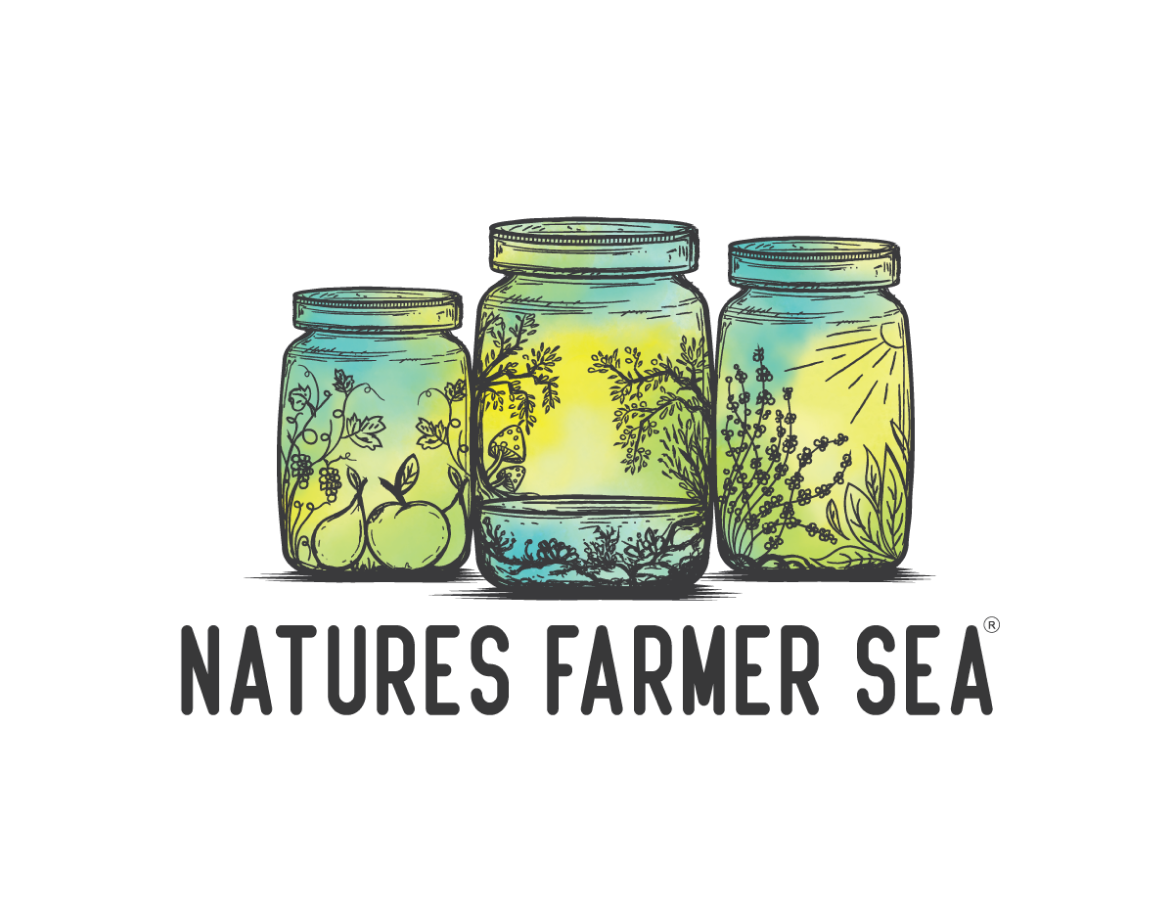By Lillian Jessop (B. Marine Science, Dip. Health Science)
At Natures Farmer Sea, we carefully select the highest-quality sea moss, focusing on two species: Kappaphycus alvarezii and Chondrus crispus. These seaweeds are naturally rich in carrageenan—a sulfated polysaccharide that has been extensively studied for its carrageenan antiviral properties.
Over the last two decades, researchers have conducted clinical trials and laboratory studies demonstrating carrageenan antiviral properties, particularly in fighting respiratory infections, human papillomavirus (HPV), and even COVID-19 (Figueroa et al., 2021; Ludwig et al., 2013; Chahla, et al., 2021; Laurie et al., 2023). Unlike pharmaceutical antiviral drugs that target the virus after an infection, carrageenan acts as a first line of defence, physically blocking viruses from attaching to human cells (Ludwig et al., 2013).
In this blog, we’ll explore the science behind carrageenan antiviral properties, its applications in medicine and food, and how incorporating sea moss and antiviral benefits into your daily routine may support immune health.
How Does Carrageenan Fight Viruses?
To cause infection, viruses must first attach to host cells using specific receptors on the cell surface. Carrageenan antiviral properties disrupt this process by binding to the virus itself, preventing it from docking onto human cells and stopping infection before it begins (Ludwig et al., 2013).
This mechanism is particularly effective against viruses that require heparan sulfate proteoglycans (HSPGs) for cell entry, such as:
-
Human papillomavirus (HPV) (Laurie et al., 2023)
-
SARS-CoV-2 (COVID-19) (Figueroa et al., 2021)
-
Common cold viruses (Ludwig et al., 2013)
Carrageenan antiviral properties essentially act as a protective shield, making it much harder for these viruses to infect cells and spread (Halley et al., 2023).
Read more about how sea moss supports immunity
Carrageenan and Respiratory Viruses
Common respiratory viruses, including influenza, rhinovirus, and coronaviruses, are highly contagious and spread easily through airborne droplets. Scientists have investigated whether carrageenan antiviral properties in nasal sprays could help protect against these infections.
Clinical Evidence
-
A randomised controlled trial (RCT) with 211 patients found that those using a carrageenan-based nasal sprayrecovered 2.1 days faster than those using a placebo (Ludwig et al., 2013).
-
Another study showed that carrageenan reduced viral loads in patients’ nasal fluids, suggesting a direct antiviral effect at the site of infection (Ludwig et al., 2013).
-
A feasibility study found that regular use of a prophylactic carrageenan nasal spray resulted in consistent reductions in upper respiratory tract infection (URTI) symptoms, making it a potential immune support option (Halley et al., 2023).
These findings suggest that carrageenan antiviral properties could be a safe and effective tool for preventing and managing respiratory infections.
Discover our sea moss nasal spray for immune support
Carrageenan and COVID-19
During the COVID-19 pandemic, researchers looked at carrageenan-based antiviral solutions as potential preventive treatments.
-
A clinical trial in Argentina found that healthcare workers using a carrageenan nasal spray were 79.8% less likely to contract COVID-19 compared to those using a placebo (Figueroa et al., 2021).
-
Another study combining carrageenan with ivermectin showed a significant reduction in SARS-CoV-2 infection rates, highlighting its potential as a protective barrier against airborne viruses (Carvallo et al., 2021).
-
In vitro studies confirmed that carrageenan antiviral properties inhibit SARS-CoV-2 infection in cell cultures, further validating its antiviral action (Sattari et al., 2021).
While more research is needed, these findings indicate that carrageenan antiviral properties could play a vital role in future pandemic preparedness strategies.
Carrageenan and HPV
Beyond respiratory infections, carrageenan antiviral properties have shown remarkable potential in preventing human papillomavirus (HPV), which is linked to genital warts and cervical cancer.
Key Studies on Carrageenan and HPV
-
A double-blind RCT on HPV infections in men found that carrageenan-based lubricants significantly increased viral clearance, making it a potential preventive agent (Laurie et al., 2023).
-
A study on anogenital HPV lesions found that carrageenan-based topical treatments significantly reduced recurrence rates after three months (Chahla, et al., 2021).
-
The LIMIT-HPV trial demonstrated that carrageenan-based gels could reduce HPV prevalence, especially in at-risk groups (Laurie et al., 2020).
These studies suggest that carrageenan antiviral properties may serve as a natural, safe, and effective method to help prevent HPV infections.
Explore our sea moss products for overall wellness
Carrageenan as an Antiviral Food Ingredient
Emerging research suggests that consuming carrageenan-rich foods may also support immune health.
Recent studies indicate that dietary carrageenan may play a role in immune modulation and inflammation reduction, both of which are essential for viral resistance and recovery.
A controlled clinical trial investigating carrageenan supplementation in patients with cardiovascular disease found that it had a moderate immunomodulatory effect, without causing overactivation of the immune system. The study showed a statistically significant reduction in chronic inflammation markers, including:
-
15.9% decrease in leukocytes
-
8.62% reduction in fibrinogen
-
13.03% drop in C-reactive protein (Sokolova et al., 2014)
These findings suggest that regular consumption of sea moss and antiviral benefits could support immune function, reduce inflammation, and promote overall health.
Summary
Extensive scientific research highlights carrageenan antiviral properties, with demonstrated effectiveness against respiratory viruses, HPV, and COVID-19. Whether applied as a nasal spray, topical treatment, or consumed as a functional food ingredient, carrageenan antiviral properties consistently show remarkable immune-supporting benefits.
By integrating sea moss and antiviral benefits into your daily routine, you may be naturally reinforcing your body's defences—supporting immunity, promoting overall wellness, and harnessing the power of nature for stronger, healthier living.





